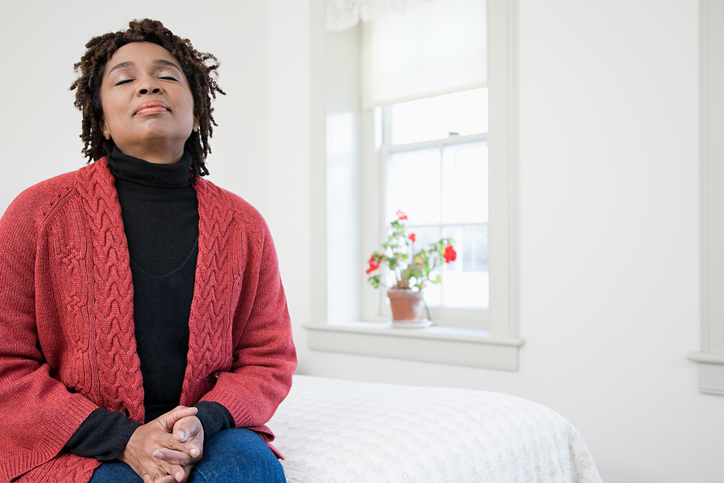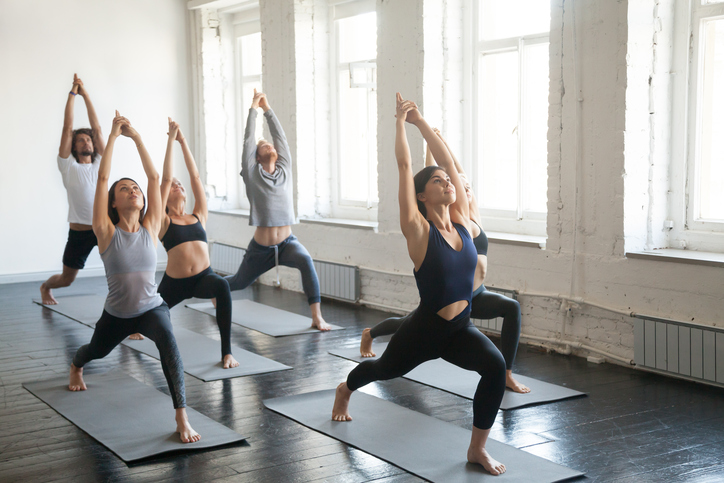For many years, the mind and body were seen as two distinct aspects of being.
Today, it is well known that the line between physical, mental, spiritual, and emotional wellness is blurry, and that one can and often does affect the other. Power poses, such as standing up straight with arms raised, has been shown to help people feel more confident, while lack of sleep and unhealthy eating habits can lead to negative emotions (Berkeley Wellness, 2014) (Massey, A., 2013). In fact, a growing body of evidence shows that the way people think and perceive the world is often rooted in their physical reality.
Correspondingly, modern wellness training programs will often make body-based therapies an important part of their curriculum. In learning how to better listen to and nurture their bodies, students become better able to tend to their whole person, and encourage future clients to do so as well.
Here’s a closer look at why body-based therapies are so important to wellness training.
Research Demonstrates that Healing Physical Pain Can Improve One’s Mental State
Physical pain is not only limiting in the sense of it restricting what one’s body might do. It can also have serious repercussions on emotion and cognition as well. Physical pain has a propensity to cause stress, for example, and can even lead to depression in some (Medline Plus, n.d.). Both of these conditions, in turn, are associated with a number of other harmful symptoms, such as reduced sleep quality, lack of enthusiasm, substance abuse, and more (Medline Plus, n.d.).
For wellness professionals hoping to aid their clients in overcoming personal obstacles and achieving a greater quality of life, understanding this crucial link between the physical and the mental is extraordinarily important. This is why a top wellness college like Rhodes Wellness College will teach students how to identify relationships between physical tension and pain with a distressed state of mind, and to address those issues that are found. In healing an emotional problem at its physical root, or—alternatively—in uncovering emotional stresses that may be manifesting as physical pain, it may be possible for clients to achieve the wellness that they seek.
Certain Forms of Exercise Have Profound Beneficial Effects on Mental Health
Certain exercises in particular can have powerful effects on one’s body and mind. Yoga, for instance, is not only a pursuit associated with improved flexibility and fitness, but also “increases body awareness, relieves stress, reduces muscle tension, strain, and inflammation, sharpens attention and concentration, and calms and centers the nervous system” (D. K., Psy.D., 2013). The sense of belonging that can stem from a regular group yoga practice has also been suggested as a beneficial effect for participants (D. K., Psy.D., 2013).
Because it addresses so many different aspects of physical, mental, emotional, and spiritual wellness, yoga is increasingly seen as a valuable practice for promoting greater wellbeing. Wellness counselling courses, such as those offered at Rhodes Wellness College, incorporate the practice of yoga and other physical exercises, into the curriculum. This helps students learn to understand and explore the mind/body connection.
Breathing Exercises Taught at Wellness College Aid in Finding Relaxation
For many, stressful moments can be much improved with just a few seconds of deep, controlled breathing. Physically, deep breathing will often have the effect of slowing a speedy heart rate and reducing blood pressure, allowing a stressed body to return to a state of equilibrium (Harvard Health Publishing., 2015). Controlled or focused breathing extends the benefits further, as it “aids you in disengaging from distracting thoughts and sensations” (Harvard Health Publishing., 2015) which might also be contributing to stress.
Breathing exercises are easily translatable to many different contexts, and are useful in meditative practice to assist with pain management, and much more. Because of this, top wellness counsellor training programs often help students gain a deep understanding of how to engage in breathing exercises, with a great deal of hands-on practice and professional guidance offered to help students achieve mastery. It is a practice that is both simple and powerful, and can lead to amazing change for both counsellors and their clients.

The simple act of controlled breathing can have amazing benefits to physical and mental health
Do you want to become a wellness coach capable of helping clients achieve wellness in all aspects of their lives?
Contact Rhodes Wellness College to learn more about our programs!
Works Cited
American Psychological Association. (n.d.). Managing Chronic Pain. Retrieved January 2, 2018, from http://www.apa.org/helpcenter/pain-management.aspx
Berkeley Wellness. (2014, June 24). The Body-Mind Connection. Retrieved January 4, 2018, from http://www.berkeleywellness.com/healthy-mind/mind-body/article/body-mind-connection
D. K., Psy.D. (2013, May 23). Take a Stand for Yoga Today. Retrieved January 4, 2018, from https://www.psychologytoday.com/blog/get-hardy/201305/take-stand-yoga-today
Harvard Health Publishing. (2015, January). Relaxation techniques: Breath control helps quell errant stress response. Retrieved January 2, 2018, from https://www.health.harvard.edu/mind-and-mood/relaxation-techniques-breath-control-helps-quell-errant-stress-response
Learn Genetics. (n.d.). Drug Use Changes the Brain Over Time. Retrieved January 2, 2018, from http://learn.genetics.utah.edu/content/addiction/brainchange/
Massey, A. (2013, May 3). The Vicious Cycle: Sleep, Stress and Diet. Retrieved January 4, 2018, from https://foodandnutrition.org/blogs/stone-soup/vicious-cycle-sleep-stress-diet/
Medline Plus. (n.d.). Pain and your emotions. Retrieved January 3, 2018, from https://medlineplus.gov/ency/patientinstructions/000417.htm










